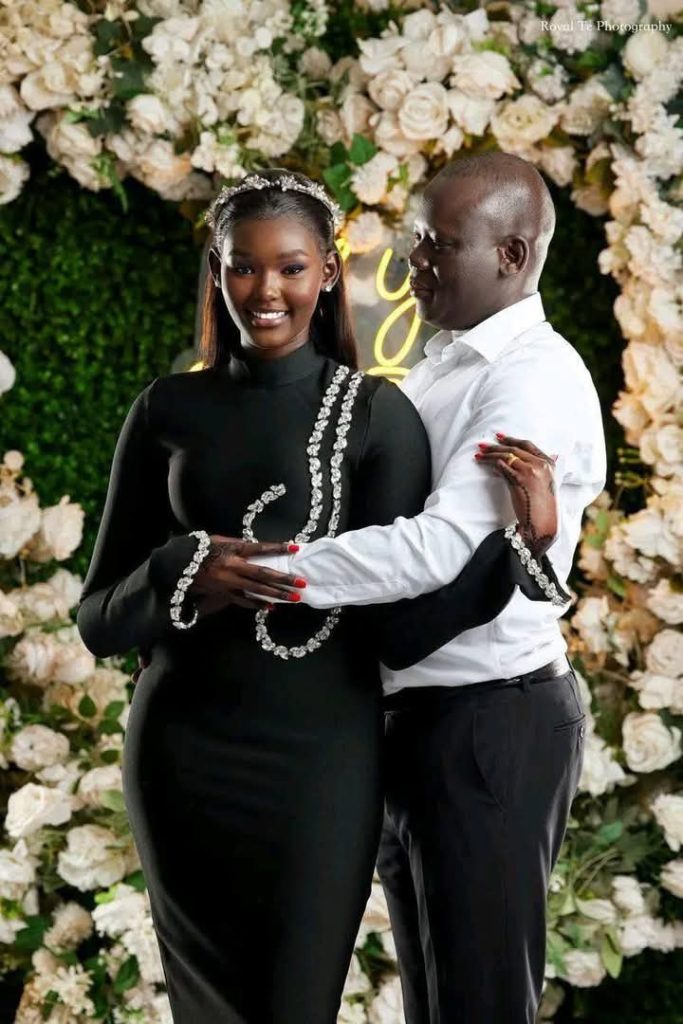Paragraph 1: A Modern Take on Polygamy in South Sudan
Josephine Abyei, a South Sudanese woman, has garnered significant attention and sparked widespread discussion on social media after publicly congratulating her husband, Mayen Koor, on his marriage to a second wife, Arual Cyer Mayardit. This seemingly unconventional act of support for polygamy has challenged societal norms and ignited a debate about marital relationships, cultural traditions, and the evolving dynamics of family structures in the digital age. Abyei’s Facebook post, proclaiming her congratulations, served as the catalyst for this online discourse, highlighting the complexities and nuances of modern relationships within a specific cultural context.
Paragraph 2: Celebrating a Second Wife: A Cultural Lens
Polygamy, while practiced in various cultures throughout history and continuing to exist in certain societies today, often carries complex social and emotional implications. In some African cultures, including parts of South Sudan, polygamy can be linked to traditional notions of wealth, status, and family lineage. It’s important to approach the subject with sensitivity and acknowledge the cultural context in which such practices occur. While seen by some as a symbol of patriarchal power, others view it as a practical way to manage family responsibilities and ensure social support within a community. Josephine Abyei’s public endorsement of her husband’s second marriage adds another layer to this intricate cultural narrative.
Paragraph 3: Social Media Reactions: A Mixed Bag of Opinions
Abyei’s Facebook post quickly became a viral sensation, generating a diverse range of reactions from users across social media platforms. Many praised her for her open-mindedness and apparent generosity, describing her as a "real wife material" and a "good woman." Commenters applauded her for supporting her husband and embracing the expanded family structure. Others, however, expressed skepticism, suggesting that her public display of support might mask deeper, unresolved emotions or hidden agendas. This spectrum of responses underscores the diverse interpretations and opinions surrounding polygamy, even within a single cultural context.
Paragraph 4: Skepticism and Speculation Amidst the Applause
Despite the overwhelmingly positive reactions from many online users, a thread of skepticism weaved its way through the comments section. Some questioned the sincerity of Abyei’s congratulations, suggesting that her public post might be a façade concealing underlying feelings of hurt or resentment. These skeptical voices raised concerns about the potential pressures faced by women in polygamous relationships and the possibility of coercion or social expectations influencing Abyei’s public stance. The online discourse highlighted the challenges of interpreting online expressions of emotion and the importance of considering the unseen complexities that might exist beneath the surface of social media posts.
Paragraph 5: A Parallel Narrative: Another Wife in Nigeria
Coincidentally, a similar story unfolded in Nigeria, where a woman named Buithat Lawal took to social media to announce her search for a second wife for her husband. Lawal’s post explicitly outlined her desire for a kind, loving, wise, and well-charactered woman to join their family. This parallel narrative, occurring in a different part of Africa, adds another dimension to the conversation surrounding polygamy. It suggests that evolving social dynamics and individual choices are playing a role in shaping modern relationships and challenging conventional notions of marriage.
Paragraph 6: Exploring the Evolving Landscape of Marriage in Africa
The stories of Josephine Abyei and Buithat Lawal offer a glimpse into the evolving landscape of marriage and family structures in Africa. They illustrate the interplay between traditional customs, individual agency, and the influence of social media in shaping public perception and discourse around complex social issues. While polygamy remains a sensitive and contested practice, these stories encourage a broader dialogue about the diverse forms that families can take and the importance of respecting individual choices within specific cultural contexts. The online discussions sparked by these women’s actions highlight the ongoing evolution of societal norms and the challenges of navigating relationships in a rapidly changing world.














